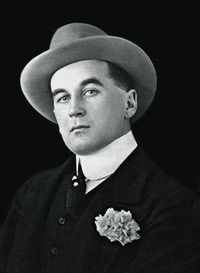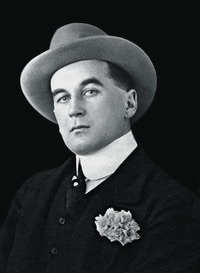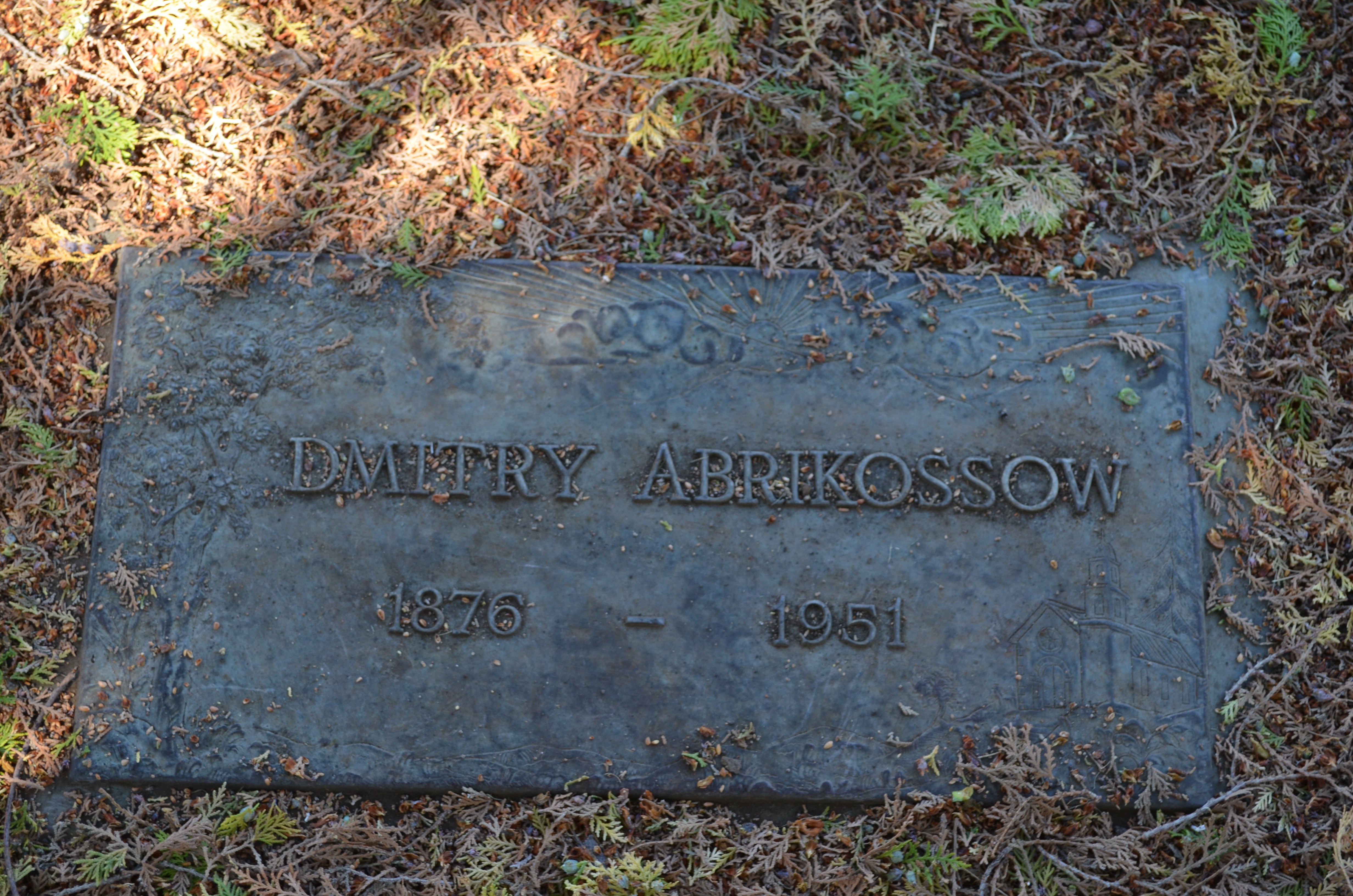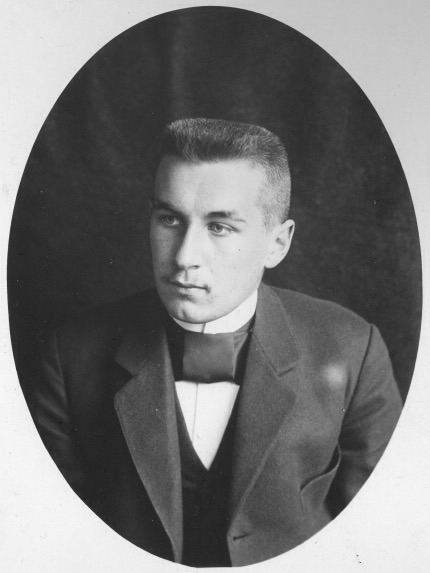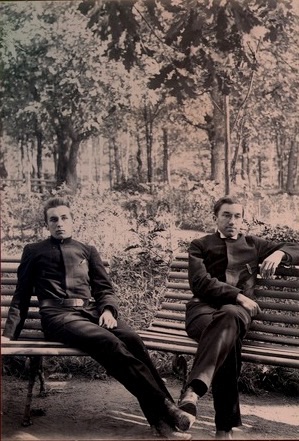Dmitriy Ivanovich Abrikosov was born on April 11, 1876 in Moscow into a wealthy merchant Abrikosov family, which owned different candy factories, including the world famous Crimean factory for the preparation of candied fruit.
In 1899 he graduated from the law faculty of Moscow University. In 1900 he joined the Ministry of Foreign Affairs with a reckoning for Home Archives Ministry of Foreign Affairs in Moscow. In 1902-1908 Dmitriy Abrikosov worked as a translator in the Second Department of the Ministry. In 1908 he was appointed second secretary of the embassy in Beijing, and in 1912 - the second secretary of the embassy in Tokyo. In 1914-1917 he worked in the Far Eastern Department of the Foreign Ministry. In 1917 - the first secretary of the Embassy in Tokyo, and later became an advisor to the Embassy in Beijing. In 1919 again, the First Secretary of the Embassy in Tokyo, in 1921 - Charge d'Affaires.
With the recognition of the USSR by Japan he then became stateless, but continued to remain in Tokyo as a private individual unofficially helping the White Russian refugees in their problems with the Japanese Government. He unquestionably was imbued with the idea that he alone could furnish the necessary assistance and consolation to his compatriots, and that it was his duty to remain in Japan, though he had formed the intention of some day making the United States his home, which intention he had expressed to a number of his friends in the diplomatic service of allied countries. In 1925 he rented a house in Tokyo, and from that date received no compensation for his services, living solely on his savings. Although he testified that there was surveillance of him by the Japanese political police and other inconveniences before, and to a greater extent during, the war, such acts fall short of persecution.
In the late prewar days, it seems he wished to leave Japan before a war might commence, but he also seems to have misjudged the imminence of such circumstance. He always held the Soviet Government in contempt, but was fearful of voicing, except to his diplomatic friends of allied countries, his sympathies for the allied cause because of reprisals which he felt would be visited upon him. He made application after Pearl Harbor to the proper representative to be transported to the United States on Swiss boats which were bringing Americans from Japan to the United States, which application was denied because of the lack of space.
Thereafter, in November 1942, the Japanese having restricted the amount of money he could draw from his account in the Japanese bank to a small monthly sum, insufficient to sustain himself in Tokyo, he accepted the invitation of a compatriot to move into his home at Kobe, where also there was greater security from bombings by the United States. About a year after making effort to obtain necessary papers to come to the United States, he received on September 17, 1946, from the American Vice Consul of Yokohama a document in the nature of a passport with an American visa affixed thereon, and was transported to the United States on an army transport vessel, and admitted at port of San Francisco on November 4, 1946, as a Russian quota immigrant for permanent residence. He thereafter resided in Palo Alto, California, having on March 4, 1947, made formal declaration before the District Court of the United States at San Francisco of his intention to become a United States citizen.
Dmitriy Abrikosov died on November 4, 1951 in Palo Alto, California. He left behind an extensive memoirs, covering the period from 1876 to 1946, from the time of his birth until his departure from Japan.
Dmitriy Ivanovich Abrikosov was born on April 11, 1876 in Moscow into a wealthy merchant Abrikosov family, which owned different candy factories, including the world famous Crimean factory for the preparation of candied fruit.
In 1899 he graduated from the law faculty of Moscow University. In 1900 he joined the Ministry of Foreign Affairs with a reckoning for Home Archives Ministry of Foreign Affairs in Moscow. In 1902-1908 Dmitriy Abrikosov worked as a translator in the Second Department of the Ministry. In 1908 he was appointed second secretary of the embassy in Beijing, and in 1912 - the second secretary of the embassy in Tokyo. In 1914-1917 he worked in the Far Eastern Department of the Foreign Ministry. In 1917 - the first secretary of the Embassy in Tokyo, and later became an advisor to the Embassy in Beijing. In 1919 again, the First Secretary of the Embassy in Tokyo, in 1921 - Charge d'Affaires.
With the recognition of the USSR by Japan he then became stateless, but continued to remain in Tokyo as a private individual unofficially helping the White Russian refugees in their problems with the Japanese Government. He unquestionably was imbued with the idea that he alone could furnish the necessary assistance and consolation to his compatriots, and that it was his duty to remain in Japan, though he had formed the intention of some day making the United States his home, which intention he had expressed to a number of his friends in the diplomatic service of allied countries. In 1925 he rented a house in Tokyo, and from that date received no compensation for his services, living solely on his savings. Although he testified that there was surveillance of him by the Japanese political police and other inconveniences before, and to a greater extent during, the war, such acts fall short of persecution.
In the late prewar days, it seems he wished to leave Japan before a war might commence, but he also seems to have misjudged the imminence of such circumstance. He always held the Soviet Government in contempt, but was fearful of voicing, except to his diplomatic friends of allied countries, his sympathies for the allied cause because of reprisals which he felt would be visited upon him. He made application after Pearl Harbor to the proper representative to be transported to the United States on Swiss boats which were bringing Americans from Japan to the United States, which application was denied because of the lack of space.
Thereafter, in November 1942, the Japanese having restricted the amount of money he could draw from his account in the Japanese bank to a small monthly sum, insufficient to sustain himself in Tokyo, he accepted the invitation of a compatriot to move into his home at Kobe, where also there was greater security from bombings by the United States. About a year after making effort to obtain necessary papers to come to the United States, he received on September 17, 1946, from the American Vice Consul of Yokohama a document in the nature of a passport with an American visa affixed thereon, and was transported to the United States on an army transport vessel, and admitted at port of San Francisco on November 4, 1946, as a Russian quota immigrant for permanent residence. He thereafter resided in Palo Alto, California, having on March 4, 1947, made formal declaration before the District Court of the United States at San Francisco of his intention to become a United States citizen.
Dmitriy Abrikosov died on November 4, 1951 in Palo Alto, California. He left behind an extensive memoirs, covering the period from 1876 to 1946, from the time of his birth until his departure from Japan.
Family Members
Sponsored by Ancestry
Advertisement
Explore more
Sponsored by Ancestry
Advertisement
